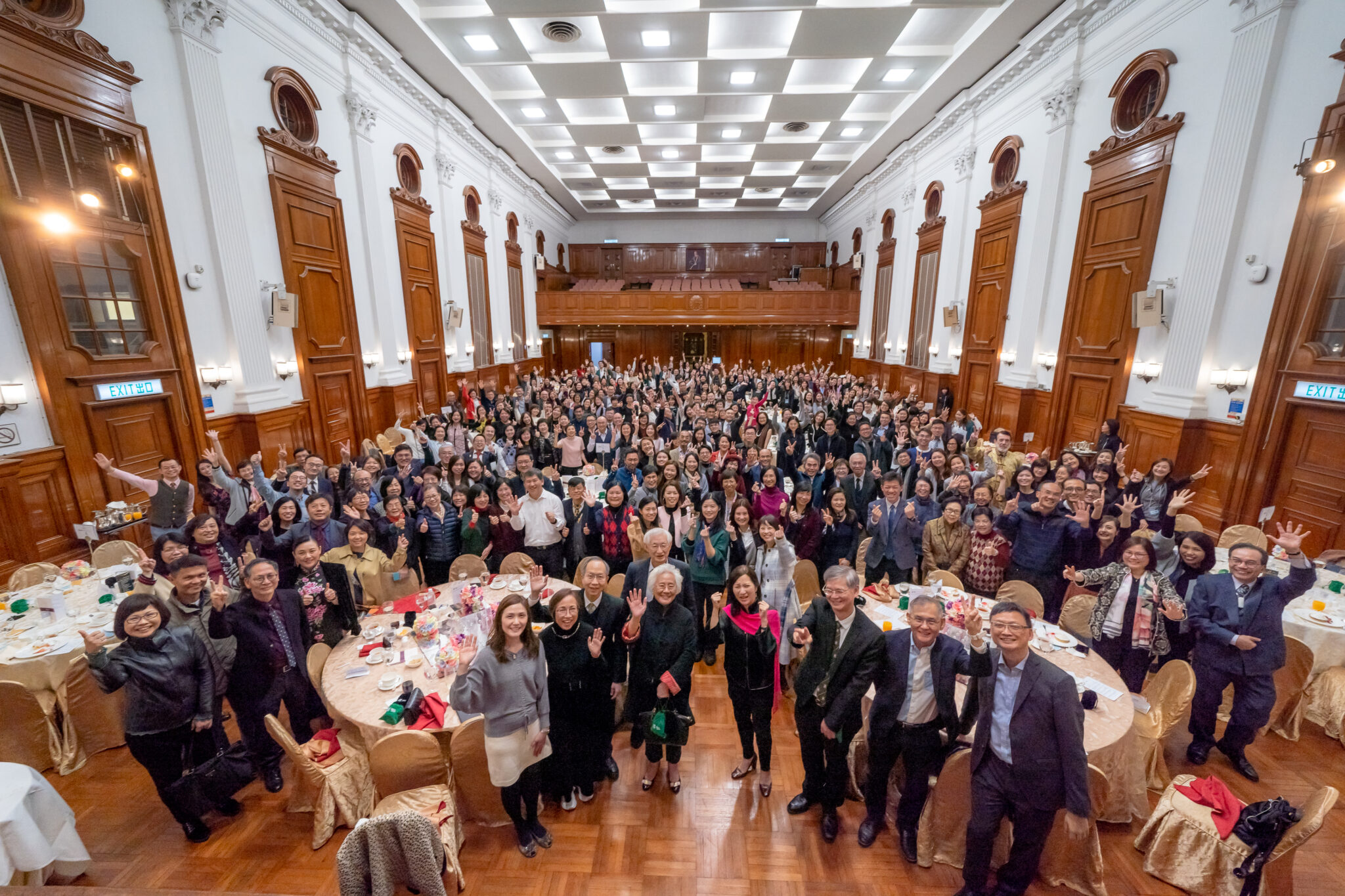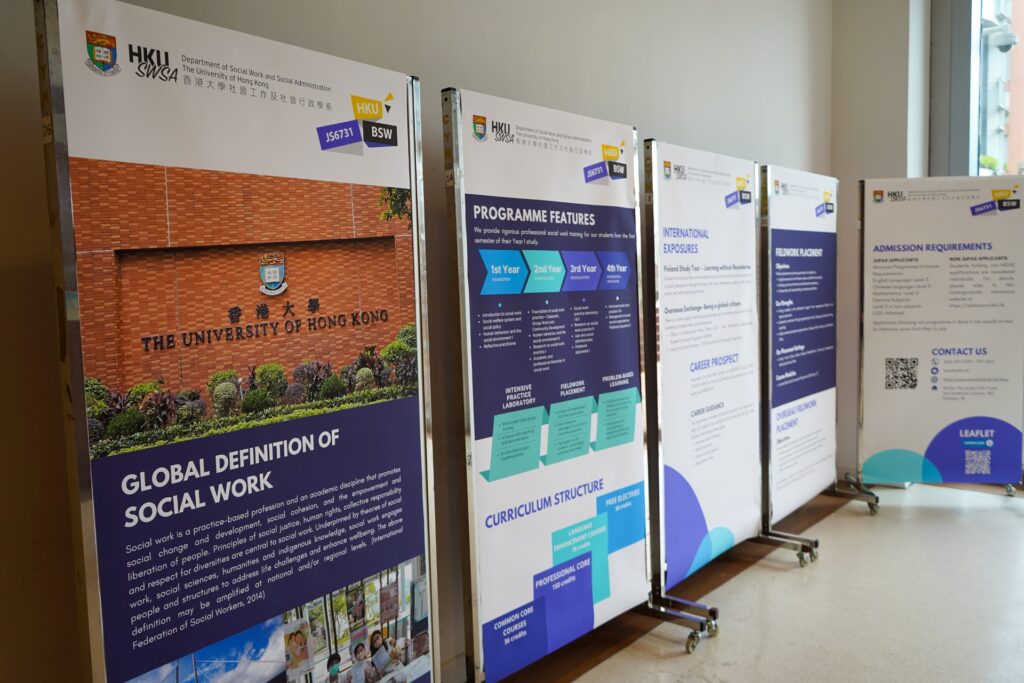MSocSc (Gerontology)
Director’s Message
Prof. Lu Peiyi
Assistant Professor
Objectives
In view of the rapid ageing population in the globe, the MSocSc(Gerontology) programme offers cutting-edge education and training in gerontology. Students will be equipped with research-driven evidence-based knowledge on topics like mental health, long-term care, caregiving, and end-of-life care, as well as management skills at both the case and agency levels. The programme is tailored to professionals seeking to specialize in working with older adults or advance their knowledge of ageing-related policies and services. Our program could be your stepping stone to a rewarding career. Join us and shape the future of gerontology!
Learning Outcomes
After the completion of this programme, students should be able to
- Critical intellectual enquiry and acquiring up-to-date knowledge and research skills in social gerontology;
- Application of knowledge in social gerontology and research skills to practice or theoretical exploration, demonstrating originality and creativity;
- Tackling novel situations and ill-defined problems related to aged population;
- Collaboration and communication of knowledge in social gerontology to multi-disciplinary health care professionals and the general public;
- Awareness of and adherence to personal and professional ethics in social gerontology;
- Enhancement of leadership skills in social gerontology, especially in program evaluation and policy advocacy.
Who will benefit from the programme
The Master of Social Sciences in Gerontology is a self-funded one-year full-time postgraduate programme for professionals who are interested in developing a career specialized in working with the elderly and who engage in elderly-related policy research.
Candidates are required to complete 60 credits, including 5 compulsory courses (6 credits each), and 5 elective courses (6 credits each) or 3 elective courses (6 credits each) with a dissertation (12 credits).
(A) Compulsory Courses
Candidates shall complete the following courses.
This course provides a comprehensive, holistic view of ageing that considers the implications for an older person’s interactions with their social and physical environments, including the immediate environment of family, friends, and home, as well as the larger social structure of community, organizations, and society. It also aims to impart knowledge to students about the most important social theories on ageing and the time dimension in the ageing process and its relation to the evolution of larger society.
Assessment: 100% coursework
The course is designed to examine the concepts of social policy and ageing, and the various models available for the analysis of social policy. By analyzing local and foreign services and policy regarding the elderly people, students will become familiar with the roles of government and non-government organizations in implementing public policies. This should further the understanding of the development of social services to meet the needs of the elderly in the context of economic and social change. Basic concepts of social planning, problem identification and programme implementation will be examined.
Assessment: 100% coursework
This course covers the whole research process from the development of research questions and hypotheses to the analysis of data as well as presentation of findings. Different data collection methods from qualitative method, survey, experiment, case study, interviews, to focus groups will be discussed. Data analysis on various types of data including secondary data will be discussed. Students will be expected to integrate and apply the knowledge and skills they acquired through the programme by attending the oral presentation by the end of the first semester of the final academic year of study.
This course aims to help students understand the implications of population ageing and increasing life expectancy in both developed and developing countries although countries in the Asia-Pacific region will be our focus. Cross-national evidence-based programs will be selected from North America, Europe, Africa, Asia, and South America. Specifically, we will illustrate how population ageing varies across the globe and how it affects family support, living arrangements, and intergenerational transfer and relationships. Moreover, the policy and practice implications of population ageing in social, political, and economic dimensions will be discussed.
Assessment: 100% coursework
This course provides students with competence, including values knowledge and skills in conducting comprehensive assessment on frail older people for psychogeriatric care. A
government adopted assessment tool interRAI Home Care will be introduced to illustrate four interrelated area of assessment, consisting of functional well-being, cognitive and mental well-being, social well-being, and clinical well-being, together with popularly used clinical assessment in corresponding areas. Students will be introduced to understand rational, contents, assessment procedures, and comprehension of assessment results for clinical intervention.
Assessment: 100% coursework
(B) Elective Courses
The course introduces students to the Beck’s cognitive-behaviour therapy model in working with people with depression and anxieties. A case process approach will be adopted to provide a stage-by-stage and step-by-step understanding of the theory and practice of Beck’s CBT. Other CBT models for working with people with psychosis, OCD, pathological gambling, substance abuse and etc. will also be discussed in class.
Assessment: 100% coursework
The knowledge base of human service practices comes from a wide spectrum of social science disciplines including psychology, sociology and political science. This course will provide the philosophical and conceptual basis for analyzing social problems and issues and translating these theoretical constructs into human service practices.
Assessment: 100% coursework
This course explores the types of mental illnesses among the elderly in Hong Kong. Attention will be put towards the understanding of the causes and treatments of mental illness in the elderly population. A critical review of medical, psychological and social services for the elderly with mental illness will be conducted.
Assessment: 100% coursework
Death is an inevitable life experience for everyone. Death-related problem is one of the commonest issues that clients brought to counseling, but is also rated as the most uncomfortable scenario by beginning counselors. This course offers a basic orientation to the knowledge and intervention approaches in working with death-related situations, including end of life care and bereavement counseling. Major theories and models related to death, dying and bereavement would be introduced. Corresponding clinical implications and practical work approaches would also be highlighted. Apart from the knowledge and skills, the course also emphasizes on personal exploration and review on one's attitudes toward life and death issues. It is hoped that students are better equipped with knowledge competence, practice competence as well as self competence in working with death, dying and bereavement.
Assessment: 100% coursework
Globally, aging population leads to both threats and opportunities for social development. New issues relating to gerontology emerge from time to time. This course will bring students one or two emerging gerontological issues each time. For example, social security, housing, health and social care integration, mental health, community empowerment, death, dying and bereavement. Focuses will be put on cutting edge knowledge on selected issues, perspectives from policy, service delivery, and/or program levels.
Assessment: 100% coursework
According to the WHO, health is a “complete state of physical, mental, and social well-being, and not merely the absence of disease or infirmity.” As people age, they are increasingly facing challenges in their physical and mental health and in their social wellbeing. A better integrated health and social care system will help older people to better adjust to their aging processes and to minimize the negative impacts of aging to their wellbeing. This course is designed to help students from diverse academic backgrounds to understand the core values, conceptual models, intervention strategies, and service delivery systems of the integrated health and social care model. Building on the foundation values and knowledge of their own disciplines, students will learn how to effectively develop and implement a multi-disciplinary team in geriatric care settings.
Assessment: 100% coursework
Globally, aging population leads to both threats and opportunities for social development. New issues relating to gerontology emerge from time to time. This course will bring students one or two emerging gerontological issues each time. For example, social security, housing, health and social care integration, mental health, community empowerment, death, dying and bereavement. Focuses will be put on cutting edge knowledge on selected issues, perspectives from policy, service delivery, and/or program levels.
Assessment: 100% coursework
Globally, aging population leads to both threats and opportunities for social development. New issues relating to gerontology emerge from time to time. This course will bring students one or two emerging gerontological issues each time. For example, social security, housing, health and social care integration, mental health, community empowerment, death, dying and bereavement. Focuses will be put on cutting edge knowledge on selected issues, perspectives from policy, service delivery, and/or program levels.
Assessment: 100% coursework
Globally, aging population leads to both threats and opportunities for social development. New issues relating to gerontology emerge from time to time. This course will bring students one or two emerging gerontological issues each time. For example, social security, housing, health and social care integration, mental health, community empowerment, death, dying and bereavement. Focuses will be put on cutting edge knowledge on selected issues, perspectives from policy, service delivery, and/or program levels.
Assessment: 100% coursework
The course provides opportunities to students to integrate knowledge gained over the course of the program and apply various psychotherapy models learned in working with clients under psychogeriatric care. Through case presentations by students, clinical feedbacks will be given in terms of case conceptualization, treatment direction, and actual application of psychotherapeutic techniques. The course will be conducted in didactic lectures, case illustrations, role plays exercises and/or demonstrations.
Assessment: 100% coursework
Dementia care and interventions can improve cognition, behavioural and psychological symptoms, and other outcomes in people with dementia and wellbeing of carers. This course equips current and future practitioners with the fundamental understanding and skills in delivering evidence-based non-pharmacological interventions in dementia, covering the entire course of illness from mild to severe, including Cognitive Stimulation Therapy (CST), Tailored Activity Program (TAP), multicomponent carer support programmes, and dementia care management; as well as case identification and evaluation of intervention outcomes.
Pre-requisite: SOWK6201. Mental health problems in old age
Assessment: 100% coursework
This course is designed to equip you with knowledge and skills necessary to systematically develop, implement, and evaluate social policies and programs. Social program funders, providers, consumers, policymakers, and the general public are increasingly focused on assessing the costs, quality, and outcomes of social services. At the same time, social service systems are becoming more complex, serving increasingly diverse populations, and facing multiple and conflicting demands from various stakeholders. Calls for “empirically-based practice” are becoming strong determinants of the types of services that will, or will no longer, be provided as part of the delivery of human services in the world. Thus, evidence-based program development is potentially powerful in helping to legitimize and advance psychosocial practice and program in health and social services. This course will enhance students’ ability to provide leadership in advancing these issues in the practice communities where they may find themselves working. It will be imperative for them to be able to (1) conduct needs assessment, (2) plan and develop evidence-based intervention programs, (3) monitor the implementation of intervention programs, (4) evaluate the effectiveness and efficiency of intervention programs, and (5) analyse research results as a basis in advocating for programs delivered by human service practitioners. Assessment: 100% coursework
Technology is becoming an essential part of our lives and it is quickly shaping the world we live in with its rapid advancements in smart devices, systems and services. The impact of technology in the active ageing community is an area of increasing interest for scientific research in the field of social sciences. Throughout the world, seniors in various background and cultures like to lead an independent life in the community.
Due to the expanding ageing cohort in most countries, there is a growing demand for healthcare and social work practitioners in a tight labor market. This rising challenge can only be matched by more effective and efficient means of technology interventions which can complement the healthcare and social work systems.
A new approach which leverages on the widespread confluence of technology and service innovations will result in an outcome that can better align the financial incentives and cost improvements for both seniors and their service providers.
To bridge the digital divide, a humanizing technological framework which the seniors and their caregivers can enjoy improved intuitiveness and user-friendly interaction will enhance the well-being and quality of life of the seniors.
Assessment: 100% coursework
This course focuses on the latest and innovative technologies and strategies to promote healthy and active aging. It delves into the intersection of aging and technology, examining how advancements such as smart devices, digital health tools, and artificial intelligence can enhance the quality of life for older adults. It also addresses the complex societal, ethical, and economic challenges associated with these technologies.
Assessment: 100% coursework
This course offers a comprehensive overview of non-pharmaceutical interventions for individuals with dementia and their family caregivers. It introduces a variety of evidence-based strategies and approaches aimed at improving the quality of life for those living with dementia as they traverse the stages of mild, moderate, and severe disease progression. It also delves into pertinent implementation issues, such as cultural sensitivity, ethical considerations, feasibility, cost-effectiveness, etc. Through a blend of theoretical knowledge and practical skills, students will learn how to customize interventions to diverse contexts and improve care practices for families living with dementia.
Assessment: 100% coursework
and any other courses offered under the Master of Social Sciences (Behavioral Health, Mental Health, Nonprofit Management, Social Service Management) and the Master of Social Work programmes
(Note: not all elective courses will necessarily be offered in a given year.)
(C) Dissertation
Candidates opt for dissertation option shall complete the following course.
The title of the dissertation shall be submitted for approval not later than three months before the formal submission of the dissertation or not later than March 31 of the same academic year of study. The dissertation shall be presented by not later than August 1 of the same academic year of study. The dissertation shall be a critical study that demonstrates the application of research methodology to the investigation of problems relevant to the field of study, and shall not exceed 20,000 words in length.
Assessment: 100% coursework

My passion for gerontology stems from the belief that older adults deserve the same respect and care as our senior family members. In an ageing society where many face diverse health challenges, I aspire to contribute to the creation of age-friendly cities. To prepare for a meaningful career dedicated to enhancing the well-being of older adults, I enrolled in the MSocSc (Gerontology) programme. Through this programme, I have gained valuable practical skills to better understand the life circumstances of older adults. Additionally, I have developed insights into advancing aging societies globally, shaping elderly-related policies, and improving aged-care services. The programme has inspired me to uphold my responsibility to serve society, give back, and empower older adults to lead fulfilling lives in their later years. Currently, my work focuses on older adults' housing conditions, and I also serve as a volunteer project manager at an NGO that organises diverse activities to enrich the lives of elders.
Athena Lam

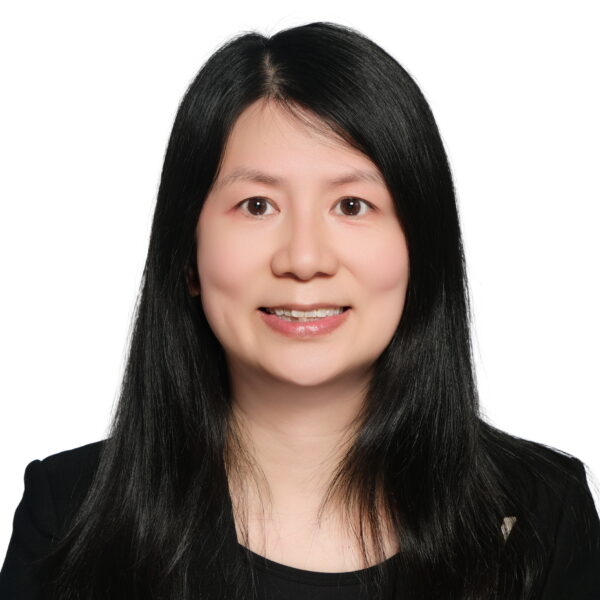

The Master of Social Sciences (Gerontology) programmeme has been a pivotal part of my personal and professional journey. I have spent two years here as a part-time student, and it has been one of the best time of my life. The programmeme is truly exceptional, offering a curriculum that has deepened my advanced knowledge in gerontology, sharpened my ability to analyse the global implications of ageing and has better prepared me for my career advancement. I have met many wonderful professors and lecturers who employ diverse teaching methods. Their expertise has empowered me to address contemporary issues affecting older adults in ways that are directly relevant to my career in gerontology. I wholeheartedly recommend the programmeme for anyone passionate about making a meaningful impact on the lives of older adults – this is where you should be.
Janice Chuek

As a project leader for a restraint reduction programmeme in privately-owned elderly care homes, I applied the courses of the MSocSc (Gerontology) programmeme to achieve significant outcomes, including reducing restraint use for over half of the residents referred to our services in targeted homes. Professor Annie Tam’s Social Policy and Ageing course equipped me to navigate complex policy changes by analyzing stakeholders, and shaped my leadership approach. The programmeme deepened my understanding of elders’ diverse backgrounds, recognising their unique pre-elder lives, which transformed my perspective on care. These insights fuel my commitment to advocating for compassionate, dignified elderly care. The master programmeme provided practical tools and a broader vision that continue to guide my work in improving elderly care standards.
Jordan Chan
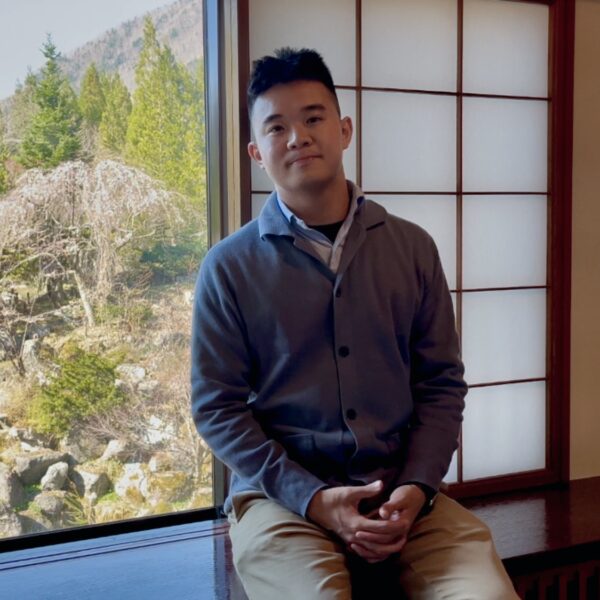


Driven by the opportunities presented by an aging society, I recognised the need to acquire more timely and specialised knowledge to address shifting social dynamics. The MSocSc (Gerontology) programmeme not only broadened my theoretical horizons but also deepened my empathy for older adults and sharpened my strategic thinking in practical social work. This learning journey has been more than academic training and has catalysed profound personal growth. It enriched my professional perspective, redefined my career direction, and inspired me to explore innovative social service models for older adults - injecting fresh motivation and insights into building a more inclusive sector and a truly Age-friendly City.
Ken Wong

I appreciate how this programme has enabled me to "connect the dots" and paved the way for my journey ahead. The instructors were welcoming and supportive, allowing me to bring my perspectives from my backgrounds in humanities and medical education. This empowerment in learning helped me bridge my academic interests across these fields. By encouraging me to look beyond "disease" in old age to see the deeper "dis-ease," this programme has shaped my aspiration for humanistic healthcare for those who are suffering.
Samson Wong
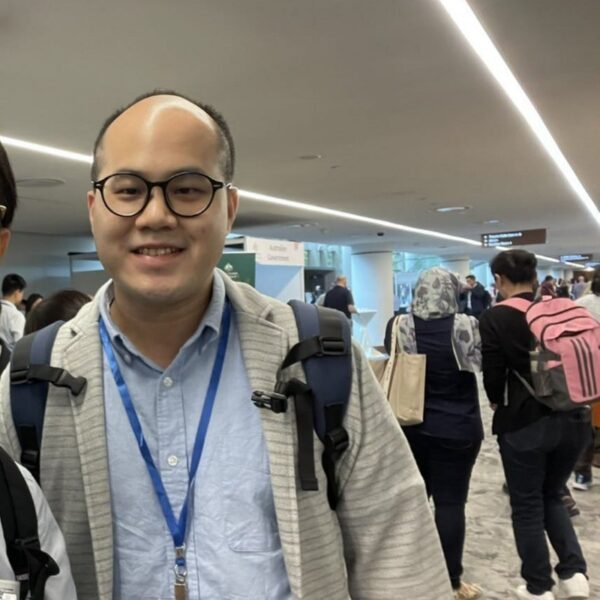
Graduates of a Master’s program in Gerontology can pursue careers in a wide range of fields. In the public sector, they may work as civic servants or policy analysts focused on aging populations. In healthcare, they can become administrators or managers in hospitals, senior care facilities, and geriatric programs. Opportunities in NGOs and community organizations include roles such as social workers, program coordinators, and community outreach specialists. For those interested in research and innovation, career paths include becoming gerontology researchers or entrepreneurs in the silver economy—developing aging-related technologies or consulting in age-friendly business strategies.
To be eligible for admission to the courses leading to the degree of Master of Social Sciences, candidates shall hold
i. a bachelor’s degree or other qualification accepted as its equivalent;
ii. a minimum of two years of post-qualification working experience preferred.
Please refer to the guidelines >>HERE<<
The tuition fee is HK$231,840 for 1 year of full-time study.
To apply, please click https://admissions.hku.hk/tpg/.
Application and payment of application fees (HK$600 per application) should be made online at https://admissions.hku.hk/tpg/. Your online application cannot be processed unless you pay your application fee online by credit card (VISA or MASTERCARD only)
Important Dates
| Activities | Date | |
|---|---|---|
| Information Session | 4 Nov 2025 6:30pm – 8:00pm Zoom Powerpoint Slide Recording | |
| Application Opens | 15 Oct 2025 | |
| Application Deadlines | Round 1: 2 Dec 2025, noon Round 2: 26 Jan 2026, noon Round 3: 19 Mar 2026, noon | |
| Admission Test and Interview | (ONLY shortlisted candidates will be invited to the Admission Test and Interview) Round 1: 18 Dec 2025 Round 2: 12 Feb 2026 Round 3: Early Apr 2026 | |
| Announcement of Results (Provisional Offer) | Round 1: Early to mid-Jan 2026 Round 2: Mid to late-Mar 2026 Round 3: Early to mid-May 2026 | |
Prof. LU Peiyi
Programme Director
- peiyilu@hku.hk
- (852) 3917 2080
Programme Enquiry
- mssgeron@hku.hk
- (852) 3910 2560
Our program curriculum is designed to align with the Gerontology Competency Education framework established by the Academy for Gerontology in Higher Education (AGHE). Upon graduation, students will be equipped with essential job readiness skills, including:
- Clinical assessment of frail older adults and their families to guide interventions
- Analysis of aging survey data to inform future strategies
- Policy briefs to advocate for people with unmet needs,
- Capstone projects on self-directed topics to sharpen independent research skills
- Health talks to promote healthy aging
- Environment audit survey to support age-friendly community development
Beyond the CAPCHE skills obtained from the coursework, students will have ample opportunities to participate in extra-curricular activities in collaboration with Sau Po Center on Ageing at HKU. These include seminars, community projects, workshops, summer camps, all of which are designed to further enhance students’ critical thinking, networking, and leadership skills.

